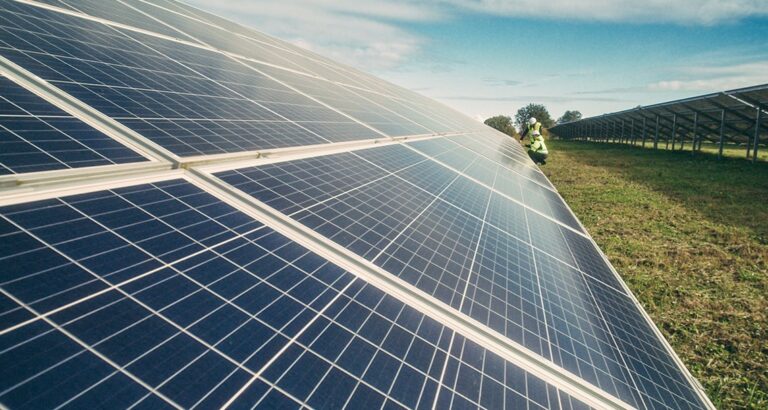Higher Degree by Research Application Portal
| Title | Microclimatic modelling below solar panel canopies |
|---|---|
| Course | Doctor of Philosophy |
| Description | Project context Incorporating photovoltaic systems into agricultural enterprises (known as ‘agrivoltaics’) has the potential to substantially reduce Scope 2 emissions from energy use and is a necessary condition to transition to a zero fossil fuel farming system. Renewable energy generation is needed to reduce emissions from powering electric farm vehicles, for low-emission on-farm irrigation, for cool storage, to generate hydrogen fuel cells, or even for water desalination or to create low-emission fertilisers. However, some farmers are pushing back on adopting renewable energy because it is seen as competing with agricultural production. Unfortunately, there is currently little to no information about the feasibility of co-locating renewable energy generation and food production in Australia to verify co-production potential (Agrivoltaics Resource Centre, Final Report 2024), holding back adoption. Evidence from other parts of the world suggest that improved microclimate conditions under solar panels can improve crop production efficiency (hence also reduce emissions per kg product). This study will investigate whether such findings translate to an Australian context, using on-site trials in WA and VIC to begin with, and augmented by data from agrivoltaics projects across Australia. |
Project overview This study will investigate how agrivoltaics can be integrated with profitable agricultural production systems, allowing farmers to lower emissions while generating multiple value streams from their land. project uses existing solar installations in Western Australia and Victoria as experimental sites to better understand how agrivoltaic systems influence local growing conditions. High-precision microclimate monitoring equipment will be installed and upgraded at each location to measure key factors such as temperature, humidity, soil moisture, heat flux and solar radiation, and to track how microclimates shift throughout the day. These field measurements will be paired with targeted crop trials (pasture, vegetables and orchard systems) to assess plant performance under different panel configurations. Desktop modelling and remote-sensing datasets will then be used to scale site-specific findings to broader agricultural regions, and process-based crop models will help determine which crop types and regions are most suitable for agrivoltaic systems. Techno-economic and benefit-cost analyses will evaluate the financial and emissions-reduction benefits of adopting agrivoltaics across Australian farming systems. It will articulate its findings through extension and outreach activities, including in-field demonstrations, workshops and written work. | |
PhD Research objectives 1) Evaluate the impacts of photovoltaic systems on microclimate conditions in different Australian farming systems through on-site data collection (WA Boonanarring, VIC Dookie, VIC Tatura) and eco-hydrological modelling 2) Perform techno-economic-environmental modelling considering time-dependent economic value and emission reduction. Integration of microclimatic modelling will allow co-optimisation of agricultural productivity, energy generation, and emission reduction | |
| Keywords | Agrivoltaics systems, ecohydrological modelling, techno-economic analysis, microclimatic, techno-environmental modelling |
| Categories | Engineering, Renewable Energy, Systems Design, Ecohydrology, Techno-Economic Analysis |
| Opportunity status | Open |
| Open date | 01 Sep 2025 |
| Close date | 31 Dec 2025 |
| Research area | Environmental Sciences |
| Agricultural, Veterinary and Food Sciences | |
| Engineering | |
| Eligibility | (1) International & Australian candidates must fulfil all admission requirements at UWA PhD Program. These include, among others, sufficient background and experience in independent supervised research. This means that your Bachelor's or Master's degree must have included a research component, typically in the form of a thesis. See UWA HDR admission policy here. (2) Candidates must be willing to be based in Perth, WA, for the duration of the PhD project; and travel, as required, to conduct fieldwork across Western Australia. (3) Proficiency in quantitative and qualitative research methods will be highly valued. An understanding of ecohydrological modelling principles, farming systems and/or environmental monitoring is highly desirable, for effective engaged with project partners and stakeholders. |
| Citizenship status | Domestic |
| International | |
| Enrolment status | Current student |
| Future student | |
| Specific requirement | We are seeking candidates with experience in land surface modelling / microclimate modelling / computational fluid dynamics. |
| How to apply | Follow UWA's guidelines here |
| Contact | Prospective candidates are asked to send an email to the lead researcher, Dr Caitlin Moore (Caitlin.moore@uwa.edu.au), including: (1) CV highlighting academic and professional history in relation to the project requirements (2) Academic transcripts to be included in expression of interest (3) A brief letter outlining your motivations to conduct this PhD project, your suitability for the position and your ideas to develop your unique research question, within the framework of the proposed project. Prospective students must read the admission requirements before contacting the lead researcher. International students need a minimum CGPA of 3.8 to be considered. |
| Scholarship details | |
| Scholarship type | Stipend scholarship |
| Scholarship value | AUD $37,000.00 per year, stipend allowance over 3.5 years |
| Scholarship details | |
| Scholarship type | Stipend top up scholarship |
| Scholarship value | AUD $24,000.00 per year, stipend allowance over 3 years |
| School | UWA School of Agriculture and Environment |
| Course type | Doctorates |
